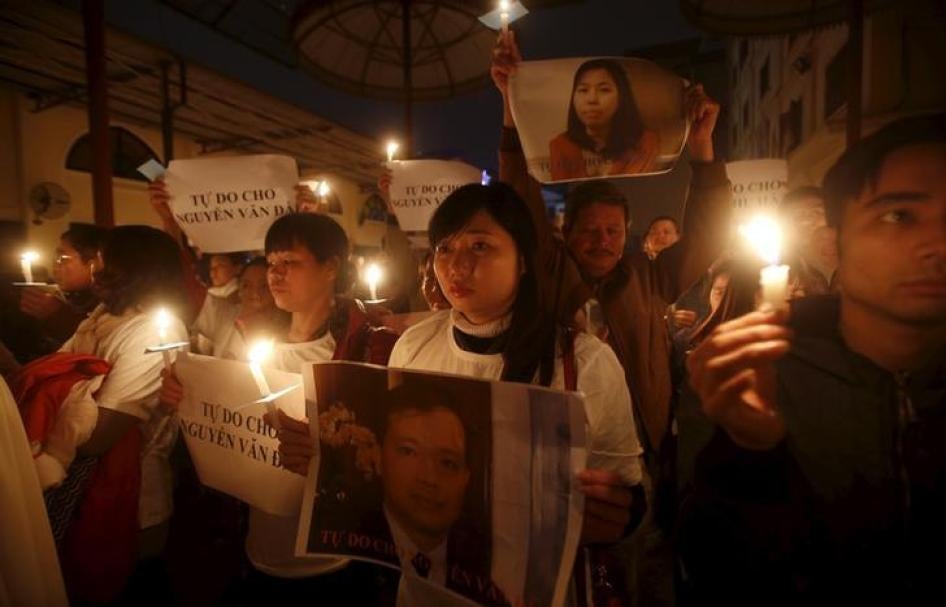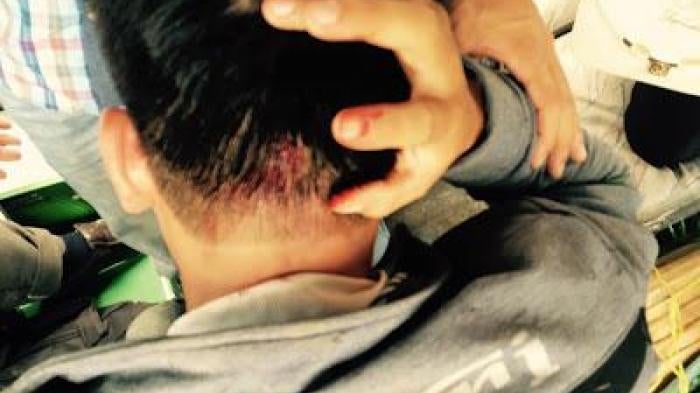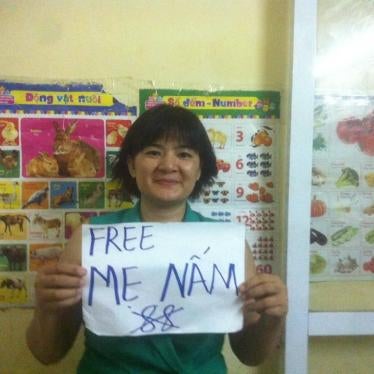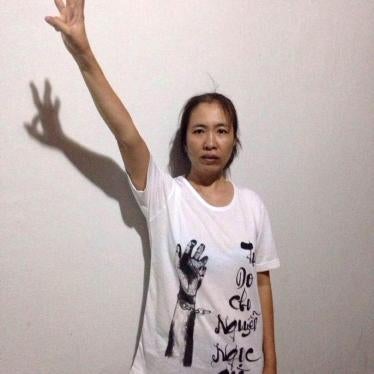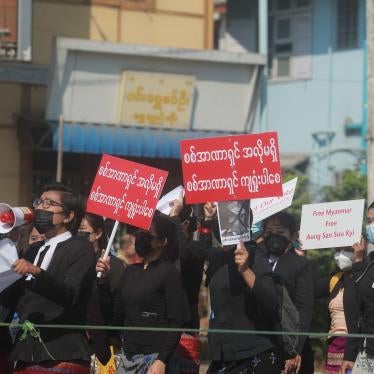(Sydney) – Australia should press for significant progress on human rights at its August 10, 2017 bilateral human rights dialogue with Vietnam in Canberra in light of sharply worsening conditions, Human Rights Watch said today. Human Rights Watch made a submission covering key areas for improvement, such as political prisoners and detainees, ending harassment and violence against activists and dissidents, and respecting freedom of expression and religion.
“Vietnam is making an all-out effort to repress criticism online in 2017,” said Elaine Pearson, Australia director. “Australia and other countries need to have a uniform approach in holding the Vietnamese government accountable, and this means being more vocal about the worsening crackdown on bloggers and activists.”
The government of Vietnam has a long record of limiting freedom of expression, association, and peaceful assembly for groups that criticize the government. Those brave enough to speak out often face multiple forms of police harassment, including intimidation of family members, arbitrary prohibitions on travel within Vietnam or abroad, brutal physical assaults, and fines.
Authorities also arbitrarily detain and hold people incommunicado for long periods without access to legal counsel or family visits. Courts impose long prison terms for violating vague national security provisions that criminalize speech and activism critical of the government. Police frequently torture suspects to elicit confessions and sometimes respond to public protests with excessive use of force.
Vietnam cracks down on bloggers and activists who post critical opinions on social media, charging many under article 88 of the penal code for “conducting propaganda against the state.” More than 100 activists are in prison for exercising their basic freedoms of expression, assembly, association, and religion.
In June, Human Rights Watch released a report that documented 36 recent attacks on human rights activists, including beatings by people in civilian clothes who appeared to be acting at the behest of the authorities, or with their permission. Police usually fail to act on complaints against such assailants. In some cases, the assaults took place in plain view of uniformed police officers who did not intervene, even when the beatings took place in a police station.
Most recently, Tran Thi Nga, also known as Thuy Nga, was sentenced to nine years in prison under article 88 in a one-day trial after sharing articles and videos online that highlighted ongoing rights abuses tied to environmental crises and political corruption. Reports in state media said she was indicted for “defaming the administration” and “spreading reactionary ideas.” A month earlier, blogger Nguyen Ngoc Nhu Quynh, also known as Mother Mushroom, was sentenced to 10 years in prison, also under article 88.
Rights activists and bloggers are not the only ones susceptible to criminal charges under Vietnam’s draconian penal code. On January 1, 2018, a revised penal code comes into force that will hold defense lawyers criminally responsible for not reporting their clients to the authorities for a number of crimes, including “national security” crimes as defined under article 88. Human Rights Watch has protested that such a law will eviscerate the right to a defense.
The government has released political prisoners following foreign pressure. On July 28, 2017, a religious activist, Pastor Nguyen Cong Chinh, was released and, following a meeting with United States officials, sent to the US after being sentenced to 11 years of imprisonment for “undermining national unity policy” under penal code article 87. His wife was harassed and beaten after meeting with the US ambassador-at-large for international religious freedom, David Saperstein, in March 2016.
However, two days after Nguyen’s release, on July 30, 2017, police arrested four prominent rights activists and former political prisoners – Nguyen Bac Truyen, Nguyen Trung Ton, Pham Van Troi, and Truong Minh Duc – for allegedly carrying out “activities that aim to overthrow the people’s administration,” according to article 79 of the penal code.
Police have also announced that prominent lawyer Nguyen Van Dai and his fellow activist Le Thu Ha will be charged under article 79 for “carrying out activities that aim to overthrow the people’s administration,” rather than article 88, and linked their cases with the recent arrests. Authorities arrested both in December 2015, and have detained them ever since. At least 14 other rights activists have been arrested and charged with vaguely defined national security violations since November 2016, pending investigation.
“Vietnamese bloggers and activists face daily harassment, intimidation, violence, and imprisonment,” Pearson said. “Australia needs to unequivocally pressure Vietnam to stop these abuses.”
